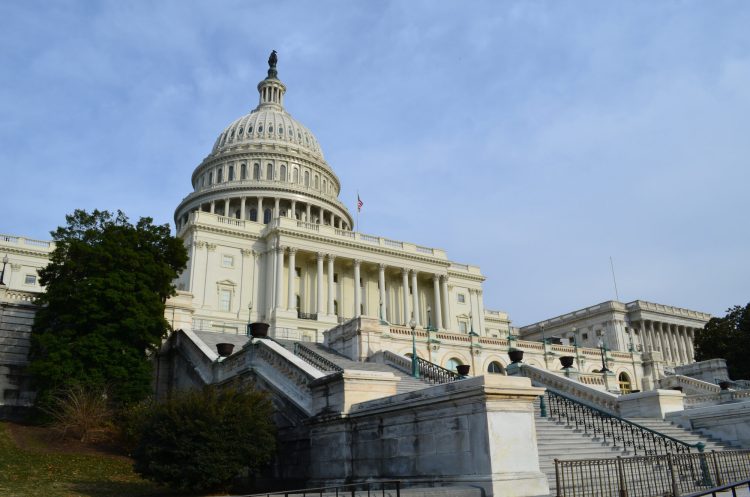This op-ed by Concord Coalition Executive Director Robert L. Bixby discusses some of the problems with the House and Senate tax bills. The article was originally published this week in Seacoast Sunday.
Republicans in the House and Senate are now debating their respective $1.5 trillion tax cut plans, which must be combined into one bill and passed by both chambers before going to President Trump for his consideration.
This will be no small feat since the two plans differ on some important details. Assuming the differences can be worked out, however, there would still be three fundamental problems that should have congressional supporters rethinking their approach: Both plans are based on unsound economic assumptions, unwise fiscal policy and undesirable gimmicks.
Supporters of the plans claim a major tax cut is needed to stimulate the economy even if it grows the debt. They also claim that the stimulative effect of the tax cut will be so great that it would largely pay for itself over time. Neither claim withstands scrutiny.
As the administration is quick to point out, the economy is growing; unemployment and interest rates are low while corporate profits and the stock market are high. Given these favorable circumstances, a tax cut is unlikely to provide much of an additional boost in the short term.
Revenue-neutral tax reform has the potential to help grow the economy over the long term but the added debt from deficit-financed tax cuts would constrain economic growth.
Ultimately, economic growth is tied to labor force expansion and improved productivity, not to where tax rates are set. The main reason why the economy is projected to grow more slowly in the future than in the past is that population aging has significantly slowed our labor force growth from an average annual rate of 1.4 percent to 0.5 percent.
A concerted effort to increase legal immigration — particularly for high-skilled workers — would do more to address this problem and improve economic growth projections than a big tax cut.
As for the idea that tax cuts pay for themselves, there is no evidence or credible economic theory to back this up. It is merely wishful thinking.
Compounding the economic flaws in the House and Senate plans is the unwise fiscal policy. They deliberately cut revenues at a time when spending on retirement and health care programs such as Medicare and Social Security is steadily rising with the wave of baby boomer retirements.
The combined annual cost of these two programs is projected to grow by $1.3 trillion over the next 10 years. The president says he won’t touch these programs and he wants to add more spending for defense and border security.
Deficits are projected to grow from $666 billion this year to $1.5 trillion in 2027. Meanwhile, the debt is already at a post-World War II high as a share of the economy and is projected to grow by $10 trillion over the next decade.
The numbers simply don’t add up.
Scoring gimmicks could make the tax cut numbers even worse than they appear. To limit its official 10-year revenue loss the House bill arbitrarily “sunsets” some provisions after 2022. The Senate bill goes further, sunsetting all individual tax provisions in 2025.
As a matter of tax policy, these “sunsets” make no sense. They were added because Republican leaders plan to use a fast-track process known as “reconciliation” to avoid a Senate filibuster. The catch is that this special process prohibits legislation from increasing the deficit beyond 10 years. Without the sunsets both plans would violate this requirement and force Republicans to seek votes from Democrats to pass a final bill.
Past practice indicates that “temporary” tax breaks tend to be extended. That may well be the intent here but doing so would add hundreds of billions of dollars in lost revenue to the official score. The sunsets are thus nothing more than a procedural sleight of hand to subvert fiscal responsibility rules.
To be clear, we do need to reform our complex and economically inefficient tax code. In that regard, some of the ideas put forward by the House and Senate deserve consideration.
But we also need to make sure that tax reform improves long-term economic growth, raises enough revenue to prevent the debt from ballooning, and does not hide costs with gimmicks.
The current plans fail that test. As the process moves forward policymakers should keep in mind that haggling over the details is not as important as getting the big picture right.
Continue Reading

